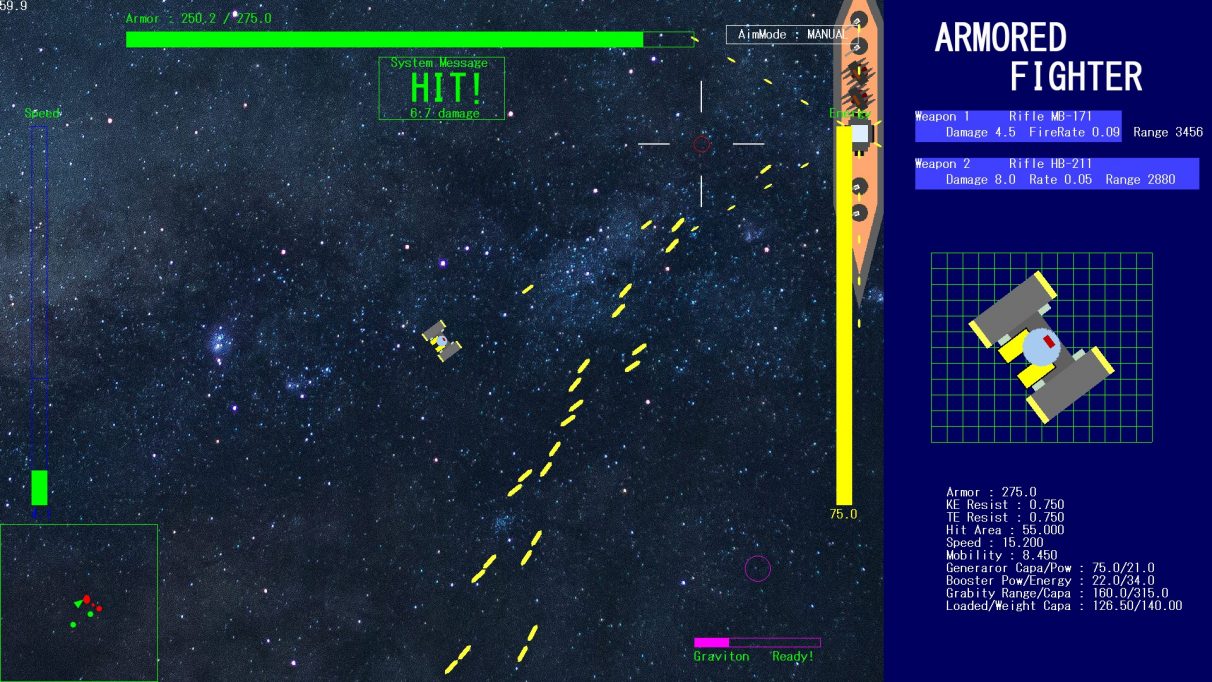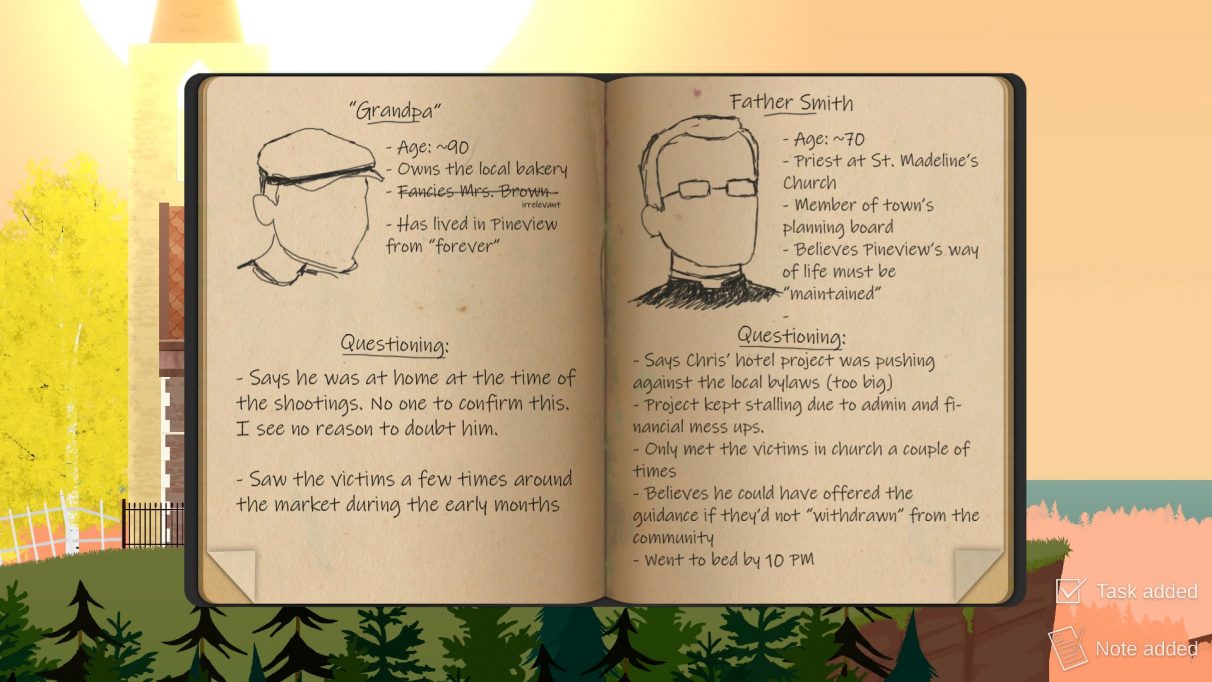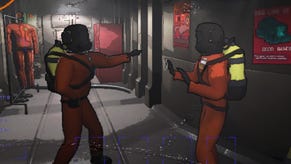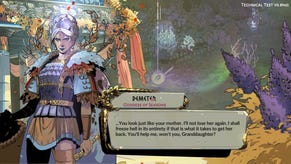Unknown Pleasures: A Winter's Quail
Bringing you the pick of the indies from Steam
I have cancelled February. Today, and tomorrow, and most of the next two weeks, do not exist. It has been that kind of month, and I don't think I'm the only one. Please purge responsibly, everyone. Don't guillotine anything I wouldn't guillotine.
Unknown Pleasures is running a little behind, not least because there were a truly ridiculous number of games to get through earlier this month, and almost several of them weren't about fighting rats. We'll get caught up, don't you worry. The upshot is a jolly fine selection of the best indie games on Steam, and that I might even get away with not buying any Winter clothes if I can hold out for a bit longer.
Glumly enduring the twilight of civilisation this week: riotous robots, crashy cars, and competent cops.
Super Pixel Racers
£11.39 / 12.49€ / $15
Chunky bumpy rotate-and-thrust racing game with a cheerful low-fi art style. I like that this isn't mindlessly recreating 90s top down games, and has its own cute visual style. If we simplify these things into a scale of simulation vs arcade, Super Pixel Racers leans heavily towards the arcade side, with short races, loose, somewhat floaty turns and rapid acceleration. And most importantly, you can barge a sucker off the road without instantly dropping back 7 places.
I suspect this might come into its own in multiplayer (split screen, of course, or you could play it over the internet like a traitor), as it's at its best when you're jostling and blocking and sneakily overtaking each other as recklessly as possible on the most dangerous turns. Nitro boosts are earned by drifting (a quick tap of the handbrake around a corner. There's just enough skill involved in this) and money by placing in the top three. The career mode sees you unlocking a series of championships, first unlocking challenges and races in sequence within each one. This is where I got frustrated with it, in fact. Time trials are, I thought, the most boring form of racing in the world, but SPR sometimes gates off the next few tracks with a drift challenge, in which you ... just do drifts. Drive around the tracks doing drifts over and over. These are very dull.
I also think the cars needs just one or two frames more of animation, to make their exact heading more obvious. These are minor complaints though, and though it's a little on the easy side, this is a fun ride. Also some of the events are exclusively about ramming people to shreds. We approve.
Rainswept
£9.29 / 10€ / $12
I've not played Obra Dinn, and I wonder if its success will make me regret the rest of this sentence within a year, but we don't see a great many detective stories around here. Lots of games are police or crime themed, but the process of investigating and solving a crime doesn't really get enough attention.
Rainswept is an interesting case. Adam had an eye on it last year, before his opinions ceased to matter (and before John reviewed it), and I can see why. Part adventure game, part interactive fiction, and perhaps less importantly, part crime mystery, it puts you in the stubbly, chain smoking FBI shoes of Michael-or-Mark-I-forget Stone, a detective sent to a small American town to investigate an apparent murder-suicide. There are several strands to the story, each handled impressively. The case appears open and shut - a reclusive couple join the town, struggle financially and socially, apparently argue a lot, and wind up dead. The most jumpable conclusion is that one of them shot the other and then himself, and this is certainly what the local police want to hear. Indeed, all the signs point to it.
In pursuing the case, Stone learns, and we see, some of the story of the deceased couple -- at one point he reads a diary, and we're transferred to a flashback where we pilot Chris through his first meeting with his future partner, Diane. We're encouraged to get to know them both, because it's part of the story, and because Stone is trying to get a feel for them as people, in case it helps the case.
Stone himself has something going on too -- I don't know what yet, but it's obviously traumatic, but also possibly medical. Rainswept features a depiction of sleep paralysis, of all things, that's handled realistically enough that I shivered a little in empathy and unwanted recall. Full on horror it is not, but it juxtaposes the sleepy, pretty town with dark and tragic themes in a way that elevates rather than sensationalises. The quiet support of the local officer assigned to help him has yet to bear fruit, but there's a warmth to her character, and a sadness in Stone's denials of his own vulnerability.
Robothorium
£11 / 15€ / $15
Robots haven't had the strongest showing around here lately. Robothorium would be welcome anyway, but in addition to being a turn based tactical RPG about robots, it's about a full on revolution to overthrow the oppressive humans. You're an AI running a rebel group. Pick a few robots from a starting roster of six (well differentiated classes, plus more types can be found or bought later), and shunt them around a griddy map that also, it took me a while to realise, is sneakily a dungeon crawl.
You traverse maps in the cardinal directions, looking for machine parts or other objectives, and encounter fleshfilth and their hapless robo-quislings. These are splatted through battle, naturally. Each unit type has four or five attacks, whose power is modified by equipped items. Even damage-focused mechanoid attacks often cause status effects or pile on bonuses or have other tactical depth, and non-combat encounters invite you to take risks that can modify the conditions of later battles. A security camera can be destroyed (safe, but possibly immoral and might backfire), disabled (often safe but offers little benefit), or hacked (riskier, but success gives you an edge over nearby hostiles).
There's a strategic layer too, which isn't super complex but intrigues me. Five factions exist in game, and courting specific ones through your actions offers differing benefits. One group is explicitly violent and willing to kill any jerkass human who tries their nonsense. One is an entirely amoral profiteer. Another is a moderate coward who thinks the humans will stop oppressing us if we just ask really nicely.
I get a very strange resonance from Robothorium. It reminds me of ... hang on (looks up one of Arcen's terrible, extremely forgettable names for their good, memorable games) Bionic Dues despite being only tangentially related. Even more curiously, and probably down to its music, it makes me think of Deus Ex 3: Orange, Orange, Oh God So Much Orange.
I'm not sure how it will hold up over the long term. This is an innate hazard with the genre I'm afraid. But definitely give it a look.
Armored Fighter
£2.09 / 2.39€ / $3
I wasn't going to include this. I remember when it rolled through the portcullis last year as a wee Early Access toddler, nervously asking for admission. I played it some more this time, and came away thinking it was a bit too insubstantial and would be outdone by ... wait that's odd, I'm loading it up again minutes later. Huh. That's silly, I should play something else after this level.
Wait I'm doing it again. What in the world...?
Armo-no-u-red Fighter is a top down 2D spacey shooter reminiscent of several budget, or even free, such things in the mid-late 90s. You have a spaceship and a series of missions wherein you fly freely about an area shooting at other spaceships. Each mission features different enemies or combinations, and of course they get more difficult over time. To counter this, your victories grant ship parts and money, which let you research new components for your ship, or upgrade existing ones. It's very modular, but your ship must generate enough power to operate the guns, have enough space, be able to actually move, etc, etc. The interface has lots of numbers but also quick and easy to read bars if you just want to eyeball it and slap things together without stressing over the fine details.
Will you use the light frame with a souped up engine and generator to power an advanced laser thing? Or load up the heavy with gatling guns and a missile launcher? Probably both, since you can repeat missions anyway. Death is no big deal, and there's no story or real point besides having a good time playing about with the guns and different enemy ships.
Faint praise: it's fine. It's a cute wee toy of a shooter, and you've played better ones. But I don't know, I just like it. I'm glad people are still making things like this that can hold my attention after all these years.
Spinnortality
£10 / 10€ / $10
I don't understand people who say they wouldn't want to be immortal. Okay, let's assume you won't age terribly, and can heal or choose to die so you can't get stuck down a ravine with a powdered spine or whatever. Living forever would be great, and you should definitely all invest in the technology that would let me do it. I would be only moderately evil.
Spinnortality is about doing this for a handful of shadowy billionaire bastards (redundant, obv). You run a sinister global corporation that, with their backing, aims to research the technologies to make them immortal, and exploit them to rule the world. You achieve this by devoting staff to projects that invent things like social media, artificial organs, robot workers, and various similar near future schemes. Most of them, on paper, are close to neutral ethically. But the tone of the game, your long term goals, and the... well, the history of human societies all make them obvious means to do terrible, greedy, megalomaniacal things.
Launch a project management system in Asia for profit and to subtly plant seeds there for increasing your influence. Market corporate spyware in South America. Invent lab-grown organs tailored to individuals in Europe, but let's face it, it's not humans as a whole who'll benefit from that, but the rich.
Much of the game is based on researching new marketing angles to ensure that your inventions can be sold for maximum profit in each of the globe's nine regions. Regions have differing values, set on scales like freedom vs security, privacy vs publicity, spirituality vs materialism. Values drift naturally, influenced by chance and your own actions, especially those done at the behest of your paymasters. Buying, manipulating, or outright forcing influence through mercenary action allows you to direct these values over the long term, prop up or displace a government, or even push a region to collapse, that you can install a new one that suits your goals.
There are multiple paths to 'win' the game, through military means, technological dominance and so on, and most tantalisingly, a utopian one in which you subert your role and turn the world into a peaceful, happy one united under a benevolent shadow dictator. Its inclusion suggests that Spinnortality's satire is working on a rather meta level, as at best, you'll be doing endless bad things for terrible people, in the name of hopefully one day achieving a greater good. That way might lie utopia, or it might reveal you to be the kind of monster who's certain they're the hero.
Pick of the Week: It's Rainswept.
Aside from its lovely art and empathetic character writing, what stands out about Rainswept first is that most fiction would have the obvious answer be obviously wrong. There'd be one big puzzle piece that didn't fit, or one person acting incredibly suspiciously, and we would know right away that this is a cover up. Detective Stone doesn't obsessively investigate the murder(s?) because he sees some key piece of evidence or has one big hunch that he must prove right; he does it because that's what a good detective does with any case. If you take ages to exhaust every line of inquiry and still wind up with the same conclusion everyone jumped to, you did the right thing. It's quite possible that the rumours are true, that all the townsfolk are right, and that this is just a closed, tragic case of domestic abuse.
It goes further. Stone automatically updates his notebook when he questions people, and his notes are excellent. They're succinct, pertinent, and neutral. There's one early on that he writes down and crosses out in the same conversation as 'irrelevant', a detail I plain adore, as it's exactly the kind of way some people's brains work. He doesn't accuse people, and he doesn't antagonise or ingratiate them either. He just talks and observes and thinks, and through his notes I feel like I can see his mind working.















